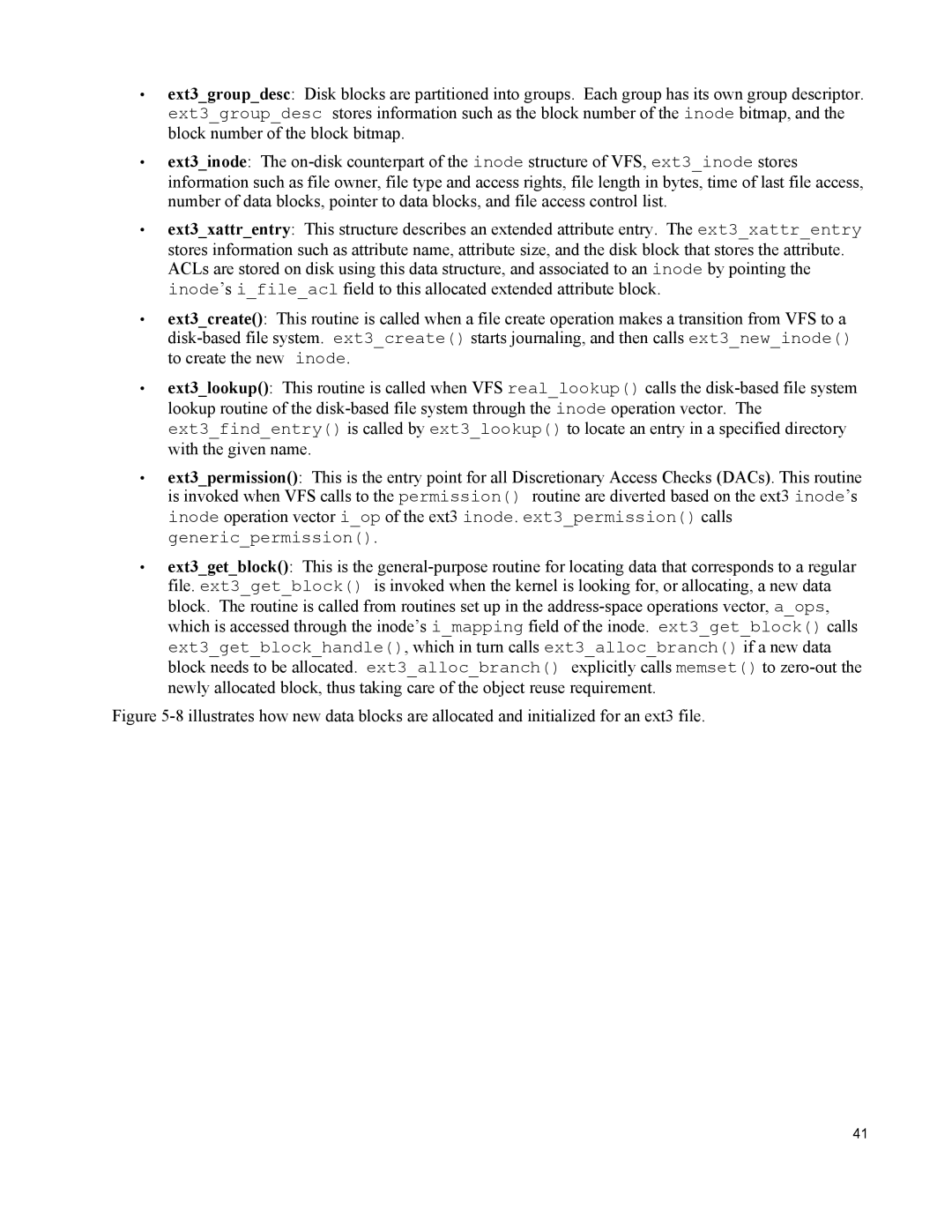•ext3_group_desc: Disk blocks are partitioned into groups. Each group has its own group descriptor. ext3_group_desc stores information such as the block number of the inode bitmap, and the block number of the block bitmap.
•ext3_inode: The
•ext3_xattr_entry: This structure describes an extended attribute entry. The ext3_xattr_entry stores information such as attribute name, attribute size, and the disk block that stores the attribute. ACLs are stored on disk using this data structure, and associated to an inode by pointing the inode’s i_file_acl field to this allocated extended attribute block.
•ext3_create(): This routine is called when a file create operation makes a transition from VFS to a
•ext3_lookup(): This routine is called when VFS real_lookup() calls the
•ext3_permission(): This is the entry point for all Discretionary Access Checks (DACs). This routine is invoked when VFS calls to the permission() routine are diverted based on the ext3 inode’s inode operation vector i_op of the ext3 inode. ext3_permission() calls generic_permission().
•ext3_get_block(): This is the
Figure 5-8 illustrates how new data blocks are allocated and initialized for an ext3 file.
41
